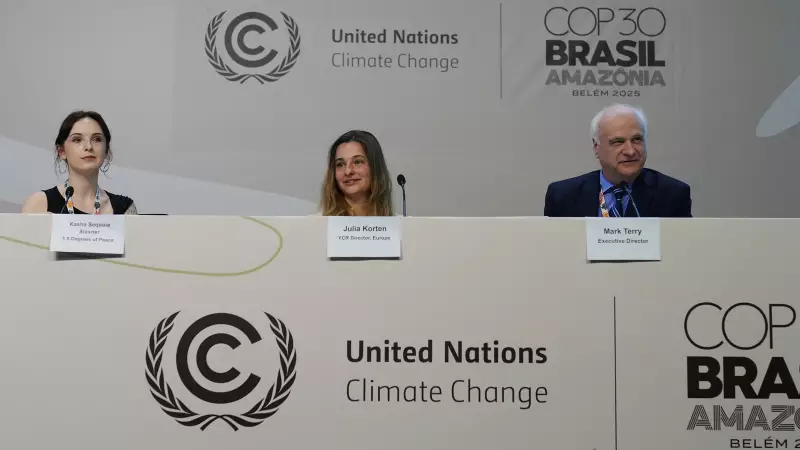
In a significant move at the COP30 climate summit in Belem, Brazil, India has forcefully raised the contentious issue of climate finance implementation, just one day after the matter was removed from the official conference agenda. Stressing that inadequate funding remains the biggest obstacle to global climate action, India called for the full implementation of a key financial provision in the Paris Agreement that developed nations have consistently ignored.
India's Strong Stance on Climate Finance
On Tuesday, November 12, 2025, India made two separate statements representing both the BASIC countries (Brazil, South Africa, India, China) and the Like-Minded Developing Countries (LMDCs) grouping. The Indian delegation emphasized the urgent need for a clear and universally acceptable definition of climate finance and called for significantly increased financial flows for adaptation efforts in vulnerable nations.
Most importantly, India demanded that Article 9.1 of the Paris Agreement be implemented in its entirety. This provision explicitly states that developed countries "shall provide financial resources" to assist developing nations in their climate action efforts. This demand came despite Brazil successfully convincing developing nations to remove this issue from the official agenda just a day earlier.
The Background of the Finance Dispute
The controversy around Article 9.1 has been brewing for months, with developing countries arguing that the comprehensive finance agreement reached in Baku, Azerbaijan, last year had completely overlooked this crucial provision of the Paris Agreement. The Paris Agreement establishes a dual obligation for developed nations: to both "provide" finance under Article 9.1 and "take the lead in mobilizing climate finance" under Article 9.3.
The Baku agreement saw developed countries commit to collectively mobilizing US$300 billion per year from 2035, a figure that fell dramatically short of the $1.3 trillion annually that developing countries had been demanding. This discrepancy left many developing nations deeply disappointed and angered by what they perceived as inadequate commitment from wealthier nations.
Brazil's Diplomatic Maneuvering
As the host country presiding over COP30, Brazil faced the challenging task of balancing competing interests. Fearing that contentious proposals like the Article 9.1 discussion might lead to stand-offs and delay the adoption of the official agenda, Brazilian officials managed to persuade developing nations to remove this and other disputed items from the provisional agenda.
Instead, Brazil promised to create alternative spaces within the conference framework to address these concerns. The host nation offered to hold a special stocktake session on Wednesday where all these issues could be discussed in detail, providing a platform for thorough examination without jeopardizing the conference's procedural timeline.
Another significant issue where India has shown keen interest involves discussions on unilateral trade restrictions such as the European Union's Carbon Border Adjustment Mechanism (CBAM). This mechanism would impose additional tariffs on imported goods with higher carbon footprints than those allowed for European manufacturers. India, China, and several other nations have labeled such measures as discriminatory and in violation of international trade laws.
The ongoing negotiations at COP30 highlight the continuing tension between developed and developing nations over climate finance responsibilities, with India emerging as a vocal advocate for the full implementation of existing agreements rather than accepting what many developing countries see as weakened commitments.





